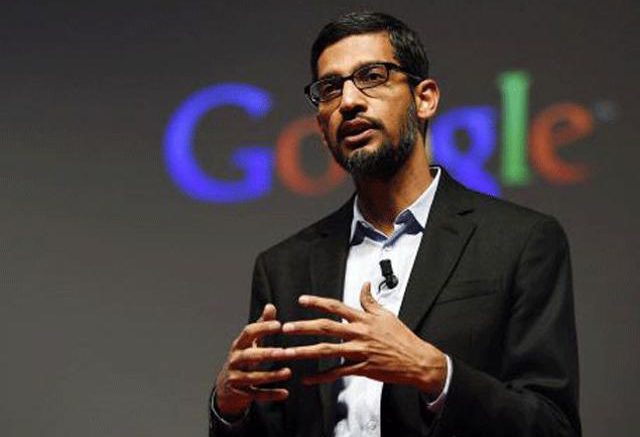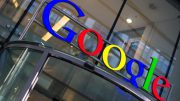SAN FRANCISCO — Google employees are awaiting the company’s next response to its culture crisis after the last-minute cancellation of its much-anticipated town hall meeting late Thursday because of concerns over employee safety.
Google was expected to address the controversy surrounding a divisive memo written by a Google engineer that was made public last week, in which he suggested that innate, biological factors are part of the reason for the gender gap in the tech industry and that Google should “stop alienating conservatives.” The engineer, James Damore, was subsequently fired for violating Google’s code of conduct. But his termination hardly served as a resolution to the conflict, which stirred up a firestorm across conservative media and left Googlers divided over the decision.
Chief executive Sundar Pichai cut short his family vacation to run the meeting, part of the company’s long-standing tradition of weekly all-hands “TGIF” sessions, where employees can ask any question of executives.But Pichai canceled the meeting shortly before its 4 p.m. start in response to fears expressed by employees for their personal safety. Some of the town hall questions, as well as names of employees who criticized Damore’s memo, had been leaked to conservative websites and commentators, leading to apparent online harassment.
The company’s new vice president for diversity, integrity and governance, Danielle Brown, locked down her Twitter account after receiving racist and sexist messages. On Facebook, conservative writer Milo Yiannopoulos posted the Twitter biographies of eight Google employees who had criticized Damore. And on Breitbart, screen images of internal Google+ messages have been published that purport to expose “left-wing Google management employees.”
In interviews, three Google employees, who spoke on the condition of anonymity for fear of losing their jobs, said that they were divided about the firing. Most said they supported the termination because it was clear that he violated the company’s policies, which prohibit Google employees from “advancing harmful gender stereotypes in the workplace,” according to an email from Pichai. They said the firing was important to send a message that policies can’t be broken without consequences.
But others pointed out that there is a significant gray area in how policies are interpreted and that the firing fed conservative assumptions that Silicon Valley is place where liberal political correctness has run amok and free speech isn’t welcomed if it contradicts the dominant liberal ethos. In the week after Damore’s firing, the conservative Breitbart news outlet published leaked internal comments from Googlers vowing to blacklist people who shared Damore’s views from tech jobs.
Many said that Google was a place where speech was welcomed and voices can be heard. They pointed to the culture of town halls, to the tens of thousands of employee-initiated special interest groups on campus, and to the many attempts by executives throughout the week to communicate with employees.
Some said that it was ironic that right-wing outlets that purport to support free speech and public debate created an environment where people didn’t feel safe to engage in it.
Conservatives and people who don’t identify as liberals have long said they felt that Silicon Valley is an echo chamber that is hostile to outsiders, said Garrett Johnson, an engineer who founded the Lincoln Network, a conservative group for technologists in Silicon Valley. Bay Area counties voted overwhelmingly for Hillary Clinton and Barack Obama; its leaders largely support Democratic causes. It is easier to support free speech if you are in the majority, he said.
The controversy comes at a time when Silicon Valley is increasingly in the political spotlight and a target of conservative ire. The industry, and Google in particular, took a strong stance against President Trump’s environmental policies and his immigration ban for Muslims and refugees. Google co-founder Sergey Brin appeared at a rally at the San Francisco airport to protest the ban. Silicon Valley payment processor PayPal and fundraising site Patreon recently came under fire from conservatives for discontinuing their services for the websites of some far-right figures.
Experts said that Google and other Silicon Valley companies have fostered a culture where employees are encouraged to speak, and that in the current polarized political climate, this issue was bound to crop up. “You’re looking at a highly educated, relatively wealthy, even among employees, socially empowered group of people who have been brought up to believe their opinion is relevant on all matters,” said Bruce Haynes, founder of the bipartisan corporate consulting firm Purple Strategies. “It wasn’t that long ago that if you were an employee in a company it was your job to toe the company line. There’s a reason that phrase exists. Now people believe their empowerment comes from speaking out and being bold, so it’s a new paradigm that companies are having to deal with internal ramifications.”





Be the first to comment on "Google employees face fear, uncertainty in aftermath of divisive memo"